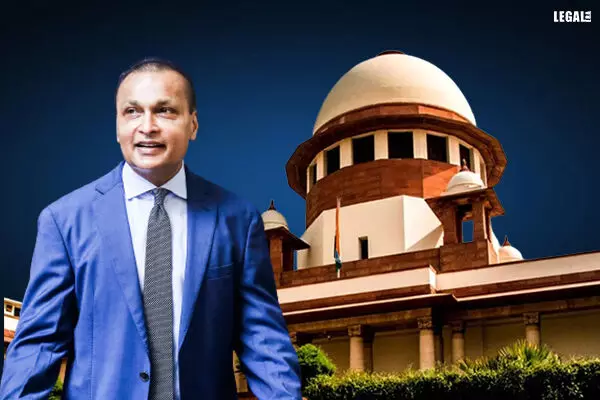- Home
- News
- Articles+
- Aerospace
- Artificial Intelligence
- Agriculture
- Alternate Dispute Resolution
- Arbitration & Mediation
- Banking and Finance
- Bankruptcy
- Book Review
- Bribery & Corruption
- Commercial Litigation
- Competition Law
- Conference Reports
- Consumer Products
- Contract
- Corporate Governance
- Corporate Law
- Covid-19
- Cryptocurrency
- Cybersecurity
- Data Protection
- Defence
- Digital Economy
- E-commerce
- Employment Law
- Energy and Natural Resources
- Entertainment and Sports Law
- Environmental Law
- Environmental, Social, and Governance
- Foreign Direct Investment
- Food and Beverage
- Gaming
- Health Care
- IBC Diaries
- In Focus
- Inclusion & Diversity
- Insurance Law
- Intellectual Property
- International Law
- IP & Tech Era
- Know the Law
- Labour Laws
- Law & Policy and Regulation
- Litigation
- Litigation Funding
- Manufacturing
- Mergers & Acquisitions
- NFTs
- Privacy
- Private Equity
- Project Finance
- Real Estate
- Risk and Compliance
- Student Corner
- Take On Board
- Tax
- Technology Media and Telecom
- Tributes
- Viewpoint
- Zoom In
- Law Firms
- In-House
- Rankings
- E-Magazine
- Legal Era TV
- Events
- Middle East
- Africa
- News
- Articles
- Aerospace
- Artificial Intelligence
- Agriculture
- Alternate Dispute Resolution
- Arbitration & Mediation
- Banking and Finance
- Bankruptcy
- Book Review
- Bribery & Corruption
- Commercial Litigation
- Competition Law
- Conference Reports
- Consumer Products
- Contract
- Corporate Governance
- Corporate Law
- Covid-19
- Cryptocurrency
- Cybersecurity
- Data Protection
- Defence
- Digital Economy
- E-commerce
- Employment Law
- Energy and Natural Resources
- Entertainment and Sports Law
- Environmental Law
- Environmental, Social, and Governance
- Foreign Direct Investment
- Food and Beverage
- Gaming
- Health Care
- IBC Diaries
- In Focus
- Inclusion & Diversity
- Insurance Law
- Intellectual Property
- International Law
- IP & Tech Era
- Know the Law
- Labour Laws
- Law & Policy and Regulation
- Litigation
- Litigation Funding
- Manufacturing
- Mergers & Acquisitions
- NFTs
- Privacy
- Private Equity
- Project Finance
- Real Estate
- Risk and Compliance
- Student Corner
- Take On Board
- Tax
- Technology Media and Telecom
- Tributes
- Viewpoint
- Zoom In
- Law Firms
- In-House
- Rankings
- E-Magazine
- Legal Era TV
- Events
- Middle East
- Africa
Anil Ambani moves Supreme Court on IBC provisions

Anil Ambani moves Supreme Court on IBC provisions
According to Anil Ambani, the SBI action against him is illegal and arbitrary thereby violating his fundamental rights under the Constitution of India
The former chairman of Reliance Group, Anil Ambani has moved the Supreme Court challenging the validity of Section 95, 96, 97, 99 and 100 of Part III provisions of the personal guarantors of a corporate debtor under the Insolvency and Bankruptcy Code (IBC), 2016.
A bench headed by Justice DY Chandrachud will consider the matter on 3 August. Meanwhile, other such petitions have already been filed, on which the court has issued a notice.
The dispute relates to a personal guarantee given in 2015 by Ambani for loans taken by Reliance Communications Ltd and Reliance Infratel Ltd from the State Bank of India (SBI).
He was a guarantor for two loans worth Rs.5,65,00,00,000 and Rs.6,35,00,00,000. In 2017, these were classified as Non-Performing Assets (NPA). In February 2020, the SBI issued a demand notice and filed an insolvency application under IBC.
The petitioner was aggrieved by the 'illegal and arbitrary' action of the bank, challenging that it directly violated his fundamental rights under the Constitution of India.
He stated that IBC mentioned that a copy of the Resolution Professional's report was only to be provided to the person filing the application. So, debtors like the petitioner were deprived of their right to know the basis and reasons for recommending admission or rejection of the application.
He argued that as per the IBC, an interim moratorium was in place against the personal guarantor as soon as an application was filed by the alleged creditor, without an application of mind by the quasi-judicial or judicial authority.
Ambani further submitted that the impugned provisions also did not envisage the possibility of the creditor, including a bank or a financial institution having already initiated recovery proceedings against the personal guarantor under the provisions of The Recovery of Debts Due to Banks and Financial Institutions Act, 1993 or under the Securitization and Reconstruction of Financial Assets, and Enforcement of Securities Interest Act, 2002.
The petition stated that when legal proceedings are pending, there is no reason for the creditor to issue a notice under IBC requiring the personal guarantor to repay the amount.
He maintained that as a personal guarantor, he was not provided any opportunity to be heard before the imposition of an interim moratorium. Also, no right of hearing was given to raise an objection to abuse of processes such as forum shopping, suppression of material facts, and other principles which bar entertaining of an application.



